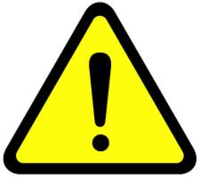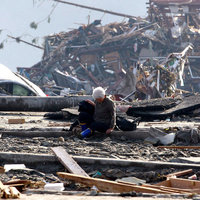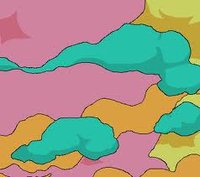Personal Statement Three
Notice
This statement was originally written by me personally in Japanese. My lawyer submitted it without making any corrections, so there may be some unnatural usages of Japanese in places (in original Japanese version).
Statement 3
September 26, 2010
Address: Fuyu, Taimusupesu, 268-20 Mukaihara, Nihonmatsu City, Fukushima, 964-0916
Signiture: (Seal)
Top of Page
Introduction
(1)
I, Wayne Michael Douglas, wish to submit this statement to address the following:
A) The prescription shortfall issue
B) Monitoring (obligation)
C) The autonomous nervous disorder diagnosis
D) The benzodiazepine dependency diagnosis
E) Other medical history (Dr. ter Haar’s patient file)
F) My recovery
G) Informed consent
H) My challenge to the defense
I) Clinical Director (Addiction Services) Dr. Judson’s and Professor Ashton’s credibility
J) The importance of this case
K) Further evidence
L) Translations
NB: I understand that some of the above issues formed part of the basis for my claim being rejected in the Tokyo District Court. As the discrepancy regarding the prescription shortfalls was only raised by the judge himself after the case had concluded, I have not had the opportunity to address this until now.
Top of Page
A. Prescription Shortfalls
(2)
It was suggested I must have had the capability to miss doses based on the grounds that some of my prescriptions had shortfalls in numbers (particularly in November 2000 when I had formed dependence). For this reason it was decided that I was not benzodiazepine dependent.
(3)
However, as Dr. Judson outlined in his third report, this decision did not take into account the possibility that I had accrued a dosage surplus over the four or so months before I had developed a state of full dependency.
(4)
The following breakdown accounts for every single dose that was administered to me from Dr. X’s first prescription on July 5th, 2000 to the final prescribed dose when I returned to New Zealand and consulted Dr. Whitwell on April 9th, 2001 totaling 278 days.
(5)
It also clarifies how I made it through the periods when there where shortfalls despite the limited doses that were prescribed and despite being in a state of dependence.
NB: The diazepam equivalents are based on the rate used by Dr. Judson in his fourth report.
Top of Page
Notice (Prescription Breakdown)
The breakdowns of prescription doses given in middle of this section (articles 6~15) are very complex consisting of many tables. For this reason it has been made available to view in a PDF file. Click below to view.
(16)
One can see by the time I started taking Dr. Whitwell’s prescriptions on April 9, 2001 that I would have had 22 doses from Dr. M and 5 doses from Dr. X left over (totaling 27 doses).
NB: As previously explained, on January 22, 2001 (the first day of Dr. M’s prescriptions) Dr. M also prescribed Lexotan (TN: Bromazepam) tablets. However, after consulting Dr. M, I decided not to take these because I felt that drugs were the main cause of my deteriorating condition. Therefore, as well as the 27 leftover doses above, I would have also had with me 16 days worth of Lexotan tablets (16 day’s worth – 16 doses at one daily).
(17)
I can recall showing Dr. Judson these sachets of powder drugs and tablets at my consultation with him. I can also recall him expressing his amazement over the fact I made it through customs at Auckland Airport because they are controlled substances in New Zealand. I can also clearly recall what I did with the 27 or so leftover doses and the Lexotan tablets. At a follow-up consultation, Dr. Judson asked me “what did you do with the leftover doses?” and I replied “I flushed them down the toilet!” I thought they were so disgusting that it was a suitable place for them to go…” However, in hindsight, this was probably not such a good idea because I am sure there are other creatures living in the waterways, and nothing deserves to be exposed to these drugs.
(18)
Below is a breakdown of the total days that I was exposed to benzodiazepines.
| Doctor | Period | Number of Days |
| Dr. X | Jul 06th, 2000 ~ Jan 22nd, 2001 | 201 |
| Dr. M | Jan 23rd, 2001 ~ Apr 08th, 2001 | 076 |
| Dr. Whitwell | Apr 09th, 2001 ~ May 05th, 2001 | 027 |
| Total Days of benzodiazepine Exposure | 304 (10 months) | |
(19)
We can see above that I was exposed to benzodiazepines for 304 days (10 months). In total the reduction phase took 40 days. Dr. Judson said that it usually takes a lot longer, but after I found out that I had not been properly informed, Dr. X’s treatment did not match the diagnosis, and that benzodiazepines are highly addictive with many adverse effects, I felt as though I had been cheated and violated, and subsequently I could not get off them quick enough.
Top of Page
B. Monitoring (obligation)
(20)
Further to Dr. Judson’s fourth report (article 4.3) I wish to bring the following fact to the attention of the court also.
(21)
According to the literature, abrupt stopping can give rise to severe symptoms including convulsions, psychotic reactions, acute anxiety states etc. Subsequently, it is recommended that patients be monitored carefully and that they never be encouraged to miss doses or attempt sudden stoppages, as they have the potential to become very unstable which in turn has the potential to result in harm to themselves and/or others.
(22)
Therefore it only seems reasonable to conclude that prescribing with shortfalls of doses in between consultation dates should never be allowed to happen.
(23)
However, we can see from the above breakdown of prescription doses from Dr. X that there were several occasions when my prescription doses fell short of the next prescription date.
(24)
This must surely then serve as further evidence that Dr. X’s monitoring and drug management was insufficient.
(25)
It was only due to luck that I had managed to accrue a surplus during the first few months of treatment which likely enabled me to make it through without any devastating consequence (not completely without harm however).
Top of Page
C. The Autonomous Nervous Disorder Diagnosis
(TN: “Autonomic Nervous Disorder” is a diagnostic term commonly used in Japan to describe: (A) Psychosomatic symptoms caused by a variety of stress / anxiety conditions, or (B) Any other condition where the Autonomic Nervous System acts in a way that produces symptoms, especially in cases where they are not sure of the cause).
(26)
Sometime in November 2000, when my drug dependency and associated symptoms started to become significantly difficult for me, I decided to spend a couple of days at my former home-stay family’s house in Tokyo to try and get some much needed care and attention. When I talked about my new symptoms to the father of my former home-stay he said “It could be Autonomic Nervous Disorder”. This was the first time that I heard this term.
(27)
Then coincidently, only a few weeks or so later, I came across a book on “Autonomic Nervous Disorder” in a local bookshop in Omiya Station. Even more coincidently, it was published by Dr. M from the O Medical Center. At first glance I noticed that many of the symptoms mentioned in this book were similar in nature to what I had been experiencing at the time and I began to wonder if this is what I had.
NB: I did not know at the time that I was suffering from benzodiazepine dependency and that these symptoms mimic the very ones the drugs are intended to treat “Autonomic Nervous Disorder” (TN: Stress and/or associated hyper function of the autonomic nervous system).
(28)
At this particular point, I had already lost faith in Dr. X’s diagnosis and treatment as my condition had been deteriorating. I was in a total state of confusion desperately clutching for any opportunity to receive an alternative diagnosis and treatment.
(29)
Upon viewing the above book I felt a renewed sense of hope. I thought that maybe I was suffering from an “Anxiety Disorder (Autonomic Nervous Disorder)” or psychosomatic symptoms due to living in a culturally different environment and general life stresses and that there may be a way out for me if this were the case and if I could then receive the appropriate treatment.
(30)
Subsequently, I went back to see Dr. K at the STRC Hospital and told him that I tried Dr. X’s treatment but my condition had been worsening. I also told him that my symptoms at this stage were similar to an “Anxiety Disorder (Autonomic Nervous Disorder)”. This is the first time that “Anxiety Disorder (Autonomic Nervous Disorder)” had been suspected. Dr. K then prepared a referral for me to see the author of the above book at the Psychosomatic Department of the O Medical Center.
(31)
Upon purchasing this book and began to convince myself and later Dr. M that this is what I possibly had and endeavored to seek an alternative diagnosis and treatment in the hope I would finally be able to make the recovery that I was so desperately pursuing at the time.
(32)
In retrospect I now think this was a stupid thing to do, however, when one is suffering from benzodiazepine dependency they will do anything to try and cling to a renewed sense of hope. Most people probably would not understand this, and I can imagine the defense saying it is just neurotic behavior, however, anyone who has been benzodiazepine dependent probably would understand.
(33)
Also, it must be considered that at this point in time I was in a total state of desperation and confusion all the time not realizing that I was suffering from benzodiazepine dependency and the associated psychological and physical symptoms it produces. I was not my true self at the time of Dr. M’s evaluation.
Top of Page
D. The Benzodiazepine Dependency Diagnosis
(34)
As I had managed to convince Dr. M that I was suffering from an “Anxiety Disorder (Autonomic Nervous Disorder)”, some may try to argue that I also managed to convince Dr. Judson that I was suffering from benzodiazepine dependency.
(35)
First and foremost there is no possible way that I could have convinced Dr. Judson of this. The reason being that I didn’t even know what benzodiazepines were, or even that I was dependant, or even what the symptoms of dependency were until after I had seen both Dr. Whitwell and Dr. Judson and received the dependency diagnosis from them.
(36)
To the contrary, they were the ones who convinced me that I was suffering from benzodiazepine dependency and informed me about the nature of dependency.
(37)
Further, I had no reason to try and convince them of anything because I did not even start to think about litigation until the beginning of 2003. This is when I first began to conduct my own research into the nature of benzodiazepine dependency and when I decided I would seek compensation for the suffering and loss that I had endured as a result.
(38)
In order to be able to make my case clear to any other relevant parties, I firstly had to make it clear to myself, which required research, analyzing, consulting expert opinions etc.
(39)
As a result, I do feel more convinced than ever before that I was indeed benzodiazepine dependent. Also, I sincerely hope that through the evidence, such as literature submitted by experts (including Prof. Ashton) and reports from experts in addictive medicine, others too can now realize this, and better understand the dangers associated with benzodiazepines.
(40)
It is not just me who has suffered from prescription drug addiction in Japan. Prescription drug dependency is fast becoming a widespread problem in Japan; a fact that was highlighted by an NHK documentary (“The Increasing Problem of Prescription Drug Dependency”) - televised at 10pm on Saturday, August 28th.
Top of Page
E. Other Medical History (Dr. ter Haar's patient file)
(41)
Further to Dr. Judson’s fourth report (article 3.1) I would like to take this opportunity to explain my complaint of “left chest pain” which was recorded on page 4 of Dr. Ter Haar’s patient file (June 27th, 1995) and reads as follows: “Had L chest pain in Japan. ECG - NAD (no abnormalities detected) -- pre-cordial catch”.
(42)
I can confirm that this occurred on 2 separate occasions (once in Japan and once in NZ) lasting for a period of about 2 weeks each time. According to Dr. ter Haar’s notes, he suspected “Precordial Catch” which is apparently associated with localized cramping of certain muscles; “This is believed to be localized cramping of certain muscles groups” (Wikipedia).
NB: The above mentioned “Convulsions” in article 21, page 16 and the above mentioned “Cramps” in article 42 are two completely different things; however, it appears that in Japanese they are both referred to as “Keiren”, so in order to avoid any confusion please refer to each of the definitions given below:
Convulsions: A general term referring to sudden and often violent motor activity of cerebral or brainstem origin.
http://www.online-medical-dictionary.org/omd.asp?q=Convulsions
Cramps: A sustained and usually painful contraction of muscle fibers.
http://www.online-medical-dictionary.org/omd.asp?q=Cramps
(43)
I can recall that it felt more aggravating whilst doing bench press exercises in the gym on both occasions and that it felt like a tweaked muscle or pinched nerve. I can also confirm I had no further episodes after the last one in 1995 which is consistent with my medical records thereafter.
(44)
The defense may try to argue that the “pressure in chest (Evidence article Koh A26)” I experienced during the drug treatment in 2000 ~ 2001 was attributable to my previous complaint of “left chest pain” above.
(45)
However, unlike the “left chest pain” above, the “pressure in chest (Evidence article Koh A26)” associated with my dependency was prolonged in duration (over 6 months) and was not localized or limited to the left side; rather it encompassed my entire chest area. Further, it was more of a “pressure” or “tightening” sensation as opposed to a “pain” sensation. Also, in the case of my dependency, the “pressure in chest” was accompanied by other symptoms consistent with dependency, whereas the previous episodes of “left chest pain” were not.
(46)
Another complaint recorded on the same day was “Minor arthralgia and ulnar deviation in joints”.
(47)
I can confirm there was a discussion regarding the above which was limited to my fingers. Dr. ter Haar explained that this was consistent with the early stages of arthritis in my hands. I can also confirm there has been no further deterioration since and I do not suffer from any pain as a result which is consistent with my medical records thereafter.
(48)
I would like to point out that this is totally unrelated to the “joint pain (Evidence article Koh A26)” I experienced during my dependency. The “joint pain (Evidence article Koh A26)” I experienced during my dependency was not localized or limited to one area; rather it encompassed my entire body, including my jaw, and was associated with pain.
(49)
Also recorded on page 4 of Dr. Ter Haar’s patient file (June 18th, 1996) was “Chest x-ray”.
(50)
I can confirm that this was requested by me because I required a copy of a chest x-ray, blood tests (including blood group), blood pressure, height etc. as part of the formal requirement for my JET Program (Japan Exchange and Teaching Program) application which is noted in the file where it says “About to undertake PR job in Japan with Japanese Government” (Kitakata Municipal Office, Miyazaki). This was not related to any medical complaint.
NB: I cannot recall exactly but I think the blood tests may have been done separately through the clinic at the university where I was studying.
Top of Page
F. My Recovery
(51)
Further to Dr. Judson’s third report (article 3.1) and his fourth report (article 2.5) I would like to take this opportunity to provide additional facts regarding my recovering from dependency. Below is a breakdown of facts showing my physical abilities at different points in time.
| Physical ability |
April 2001 (Following drug treatment) |
Mid ~ Late 2001 (Following initial withdrawal) |
Mid 2003 (After initial recovery from dependence) |
2010 (Present) |
| Walking | Struggled to walk 50 metres | Still struggled to walk but was slowly improving | Able to do a full day’s hiking in the mountains | Able to do a full day’s hiking in the mountains |
| Running | Impossible | Not attemptable | Able to run for about an hour | Able to run for about an hour |
| Bench press | Not attemptable | Struggled with approx 10 reps at 30 kgs |
10 reps at 90 kgs Max: 110 kgs |
10 reps at 90 kgs Max: 110 kgs |
| Squats | Impossible | Not attemptable | 10 reps at 180 kgs | Unknown due to groin strain |
| Body weight | 64 kgs | Improving | 84 kgs of muscle | 84 kgs of muscle |
| Appetite | Poor | Improving | Good | Good |
| Sleep | Poor | Improving | Good | Good |
(52)
Ever since I first began preparing my case for compensation at the beginning of 2003, I only have a single regret. That is I did not take any photos of my condition after I returned to New Zealand when I was in a state of dependence. However, as I was so focused on trying to get well again, I didn’t even think to take any photos. As my mother said in her statement, I looked like a “half dead zombie” and that is just how I felt too.
(53)
After searching through my photo collection, I found a photo that was taken in February 2002 when my former girlfriend K came out from Japan to see me in New Zealand. It does not sufficiently depict the actual extent of my addiction but this is the best I could come up with. This is labeled as Photo B (See appendix).
(54)
This photo (Photo B) was taken about 9 months after I had ceased taking benzodiazepines and after I had already made a significant recovery. As mentioned in my first statement: “On December 12th, 2001, when my girlfriend K came to New Zealand from Japan to see me, she said with a look of delight that I looked like a completely different and healthy person and that my condition had improved notably since we last met in February 2001 with an increase in weight and better facial colour” (see pages 14~15) .
(55)
Considering the fact that I had already made a considerable improvement by the time Photo B had been taken (February 2002) and considering how still clearly sick looking I was in Photo B, one can only imagine what I must have looked like when I first arrived back in New Zealand almost 1 year prior to this photo being taken.
(56)
One may look at Photo B and think “Oh yeah, so what? He’s lost some weight”. However, I urge you to take a closer look – look into the eyes and one can see there is still that vacant and distant look that I had and felt. This is what my mother referred to as the zombie look. Further, you may recognize the aged gaunt look that I have talked about.
(57)
In order to get a clearer perspective, I have also included two other photos. Photo A which was taken at the beginning of 1996 (about 4.5 years before I became dependent) and Photo C which was taken in December 2009 (about 8.5 years after I stopped taking benzodiazepines).
(58)
It is interesting to note that I look much healthier, stronger and brighter in Photo C, despite actually being 8 years older than I was in Photo B. As I have said before, it looked like I was aging at the rate of one year every month during the time I was on the prescription drugs. Also notice the difference in the shape of the shoulders.
(59)
Photo B (taken after 9 months of drug rehabilitation at a time when my condition had much improved comparatively) shows the result of Dr. X’s treatment whilst Photo C shows the result of Dr. Judson’s rehabilitation from Dr. X’s drug treatment. I’ll leave it to you to decide which result you think is the correct one, and which result you would prefer if it was you, or someone you care for on the receiving end instead of me.
(60)
I would like to point out that my recovery was not a simple case of all my symptoms improving steadily together over time. Yes, they did improve over time but I found that they fluctuated in intensity and came and went depending on certain points in time. I also noticed as the months went by the periods of time when I felt well were getting longer.
For example, when I first stopped the drugs I felt terrible all the time but a few months later I would maybe feel better for a few hours in the morning, then later down the track I started to have whole days of feeling better, but once again, these were sporadic and I often had relapses for many months and it took at least a year to get over the worst of it.
(61)
As Dr. Judson said in article 3.2.9 of his third report: “The one exception to Wayne’s recovery from these symptoms following his abstinence from Benzodiazepines was that he did continue to suffer from panic attacks, albeit to a lesser degree over time.
However, this needs to be analyzed taking into consideration the long term effects including; protracted withdrawal, the trauma of the dependence experience, and the additional pressures of his subsequent case for compensation”. See article K (Further Evidence) below.
Top of Page
G. Informed Consent
(62)
Further to Dr. Judson’s fourth report (article 4.2) I would like to take this opportunity to add my thoughts on informed consent.
(63)
As I was not given any informed consent and because I ended up suffering from dependency, I felt for the first time in my life that I had been cheated and violated, both physically and mentally. For the first time, I could actually imagine what it must feel like for a woman to be raped. That is to have their body intruded without their consent and to suffer from the emotional consequence of that intrusion. This is how I felt when Dr. Whitwell first informed me about the nature of the drugs on April 9th, 2001.
(64)
Further, as I highlighted in my first statement (Page 10), at my final consultation with Dr. X I requested information about the drugs I was on, so that I could inform future doctors. The provision of this information was point blank refused. I have just noticed now that it says on the dispensary form: “When seeking treatment from other medical providers, make sure to tell them that you are taking this medication”.
(65)
I know that Dr. X is a very proud person, so it makes me wonder if my stopping the treatment hurt his pride which in turn made him adopt an uncooperative attitude.
Top of Page
H. My Challenge to the Defense
(66)
I am fully aware the defense is trying to use the “Anxiety Disorder (Autonomic Nervous Disorder)” argument as a way of avoiding responsibility over my benzodiazepine dependence and subsequent loss and suffering, despite the fact Dr. Judson has made it clear that this does not change anything as far as the dependence diagnosis is concerned.
(67)
I feel it is reasonable to say that anyone who has an “Anxiety Disorder (Autonomic Nervous Disorder)” is far more vulnerable to suffering from psychosomatic symptoms at times when life stresses are increased.
(68)
My current situation, with my quest for compensation and more recently my progression to the High Court of Appeal, places me under significantly more stress now than what I have ever been under before at any time during my entire life. Furthermore, I have once again been working and residing in Japan, an environment different from my home country, simultaneously since September 2008.
(69)
If I had a predisposition to an “Anxiety Disorder (Autonomic Nervous Disorder)” due to a culturally different environment and general life stresses, as suggested by Dr. M and as being claimed by the defense, one would expect my condition to be much worse now - compared to what it was back in 2000~2001.
(70)
However, this is clearly not the case. Quite the contrary, my general health condition at present is incomparably better than it was in 2000~2001.
(71)
Further, I have not experienced any of the symptoms outlined in sections 1.4.6~8 of Dr. Judson’s first report and subsequently, I have not sought any medical advice in Japan for these kinds of symptoms since I returned here in September 2008 to testify. This must serve as yet further evidence that my condition in 2000~2001 was not consistent with an anxiety disorder but rather benzodiazepine dependency.
(72)
I am also aware that Dr. X still maintains I had Sylvian Aqueduct Syndrome. However, none of the other specialist neurologists I have spoken to either in New Zealand or Japan agree and I too find this to be totally unconvincing.
(73)
In light of the above, I would like to take this opportunity to challenge the defense as follows:
I am willing to undergo clinical testing for both an “Anxiety Disorder (Autonomic Nervous Disorder)” and “Sylvian Aqueduct Syndrome” at any hospital appointed by the court as long as I may be accompanied by my legal representative - Mr. A.
Top of Page
I. Clinical Director (Addiction Services) Dr. Judson's and Professor Ashton's Credibility
(74)
I am aware there have been some reservations with regards to the credibility of Dr. Judson’s reports. Subsequently, I would like to take this opportunity to ask all relevant parties to consider the following:
- Dr. Judson himself was the one who diagnosed me as being benzodiazepine dependent at the time that I was in the midst of dependency
- Dr. Judson is a specialist in addictive medicine
- Dr. Judson is a Clinical Director (Mental Health & Addiction Services)
- Dr. Judson has specialized knowledge regarding benzodiazepine dependency
- Dr. Judson has detailed first-hand knowledge of this case
- Dr. Judson’s reports 1~4 are based on the evidence (patient files)
- Dr. Judson’s reports 1~4 are based on the DSM-IV-TR diagnostic criteria for dependency
- Dr. Judson’s reports 1~4 include expert opinions, literature and information supplied by Professor Ashton who is the world’s number one leading expert on benzodiazepine dependency
NB: To confirm Professor Ashton’s level of expertise in this field, please view her profile at: http://www.benzo.org.uk/index.htm
(75)
Also, I am aware the defense may view Dr. Judson as being bias in his judgment, therefore, I would like to ask the relevant parties to consider the following comment made by Dr. Judson in article 2.2.2 of his third report.
2.1.1
Wayne’s handwritten note (Evidence Koh A26) shows that this muscles stiffness came to include a significant tightening in his jaw, which led to him not being able to close his mouth properly following about 4 ~ 6 weeks (months) of Benzodiazepine prescriptions.
Also contained in this list was “pains in joints”. This is supported by the fact that after returning to New Zealand, Wayne consulted the Dental Department here at Taranaki Base Hospital and was diagnosed with Temporo Mandibular Disorder, or TMD.
NB: In the Q & A document, between Mr. A and me, dated 19th December 2008, I said that I was unable to comment further on some of Wayne’s symptoms including the muscle stiffness. This is because further information was needed at the time in order to be able to make a more objective decision. However, now that I have had the opportunity to view the patient files firsthand, and to consider this in context, I can confirm that the muscle stiffness is consistent with withdrawal.
NB: You will note also that there is an error in the translation done by the translation company above. It should have been 4 ~ 6 months, not weeks. See article L (Translations) on translation errors.
Top of Page
J. The Importance of This Case
(76)
As all of the relevant parties are aware, this dispute between Dr. X and I has been continuing for about the last 4 years. However, what people need to realize is that there is more to this than just Dr. X and I.
(77)
I know from firsthand experience, and indeed from the literature (mainly from Prof. Ashton), that benzodiazepine dependence can destroy people’s lives including their jobs, family, relationships and general wellbeing. Further, it is not only the dependent person who suffers. It affects entire families, the workplace and others around them as well. Further, when these cases become numerous it also affects society as a whole. Some of the socioeconomic costs highlighted by Professor Ashton include the following:
- Increased risk of accidents - traffic, home, work.
- Increased risk of fatality from overdose if combined with other drugs.
- Increased risk of attempted suicide, especially in depression.
- Increased risk of aggressive behaviour and assault.
- Increased risk of shoplifting and other antisocial acts.
- Contributions to marital/domestic disharmony and breakdown due to emotional and cognitive impairment.
- Contributions to job loss, unemployment, loss of work through illness.
- Cost of hospital investigations/consultations/admissions.
- Adverse effects in pregnancy and in the new-born.
- Dependence and abuse potential (therapeutic and recreational).
- Costs of drug prescriptions.
- Costs of litigation.
(Benzodiazepines: How They Work and How to Withdraw, Chapter 1).
(78)
I feel I have now done everything that I possibly can to highlight the dangers of benzodiazepines and dependency in my case. However, there are undoubtedly many others out there who are suffering as I did and even worse cases as well.
(79)
For doctors to continuously cast these incidences off as patients being neurotic and to go on prescribing these drugs long term has serious implications for many people and for society as a whole.
(80)
Further, no one is exempt from the risk of being exposed to the dangers of these drugs, in particular, if cases like this continue to go unrecognized then surely these incidences will continue to increase. Subsequently, I would like to take this opportunity to urge the court and the defense to consider this case very seriously. Perhaps next time it could affect you or someone close to you.
(81)
The reason why I decided to peruse litigation in the first place is because I felt it was just wrong. One does not seek treatment, especially from a specialist, to end up in the state that I did. I felt many others are likely suffering too and that people needed to know about what happened.
(82)
I appreciate this is a very complex case, especially given the fact that benzodiazepine dependence often mimics the symptoms of an “Anxiety Disorder (Autonomic Nervous Disorder)”.
(83)
Subsequently, I sometimes feel concerned that it may end up in a case where one cannot see the woods for the trees (cannot perceive the overview or important things because of concentrating too much on details).
(84)
With the help of Dr. Judson and my legal representative, Mr. A, we have done our best to present the facts based on the evidence. Included in these facts was my previous history of good health, the fact that I was still able to work in Japan, albeit on light duties, before the treatment began, but struggled to complete my contract during the course of the treatment (subsequently cut short) and I then ended up in a state where I was unable to work at all again for over one year (Refer Dr. Judson’s fourth report, article 2.3.9).
Further, I have been able to make a return to living and working in Japan, and despite being under considerable more stress on this occasion with my ongoing case for compensation, I continue to maintain a much better state of health.
(85)
On top of this is the fact there was a 50~100% chance that I was dependent simply based on the duration and dosages of the prescriptions alone - before the overall clinical picture and the application of the DSM-IV-TR were even taken into account (Refer Dr. Judson’s third report, article 1.3.2). Then when the overall clinical picture and the application of the DSM-IV-TR etc are added to this 50~100% chance, surely then the fact that I was dependent becomes clear beyond any reasonable doubt.
Top of Page
K. Further Evidence
(86)
According to page 58 of the Tokyo District Court verdict, the long term effect part of our claim was rejected on the basis that no such diagnosis had been made. With regards to this, Dr. Judson made the following comment in article 3.5 of his third report: “I understand that there is a dispute over long term effects with regards to Wayne’s post drug rehabilitation history. Subsequently, I am happy to provide a report on long term effects of Benzodiazepine use based on Wayne’s case”.
(87)
As the court are aware, we have already submitted the following:
- Report 3 (Based on patient files from Japan – STRC Hospital, S Clinic, O Medical Center)
- Report 4 (Based on patient files from New Zealand – Dr. ter Haar, Dr. Whitwell, Dr. Judson)
This time we would like the opportunity to submit the following:
- Report 5 (Based on post incident patient files from Japan – SWRC Hospital)
(88)
By submitting all three reports above we will be able to complete the benzodiazepine picture in my case based on the evidence.
(89)
Further, as Dr. Judson commented in his third report (article 3.5.4):
“It is preferable to submit reports regarding (the long term effects) as well in advance of any potential hearing date. This will allow time to get all of the facts straight based on the evidence in order to help provide the most accurate information possible. By doing so, all parties will have the opportunity to view the reasoning in advance, and therefore, be able to prepare any questions that they may have, which I am happy to respond to.”
“Also, please understand that preparing these reports takes time, as I also have work commitments at the hospital and there is also the need to relay information between Wayne and his lawyer between two different languages”.
(90)
After consulting Dr. Judson once again about the necessary time mentioned above, he said that he will be busy with end of year hospital duties over the next few months but said that he should be able to complete report five (regarding long term effects) during his end of year holiday period.
NB: The translation company has started work on the English translations of the SWRC Hospital patient files ready for Dr. Judson to take a look at which will help form the basis for report 5 and so preparations are already underway.
Top of Page
L. Translations
(91)
Unfortunately, there appears to be many inaccuracies contained in the Japanese translations carried out by the translation company. Further, many of the expressions tend to differ from those contained in the original English documents resulting in a general lowering of the quality in the reports.
In this particular court case we are faced with the necessity to work across two different languages, and subsequently, neither my legal representative Mr. A, who is busy with other jobs, or I have the time needed to check the translations. We are always struggling just simply getting them submitted before the deadlines. Due to these circumstances I realize this cannot be helped but it would be appreciated if all relevant parties could cross reference with the original English sources if in the case something appears to be odd.
Top of Page
In Closing
(92)
The additional demands of the High Court proceedings and preparations have placed an incredible additional burden on me, especially with the demands on my time and the massive translation costs that I have had to endure - approximately 1,000,000 (TN: US $10,000) yen in translation costs alone.
(93)
I would like to take this opportunity to remind the court that everything I have claimed throughout this case is true and factually stated to the best of my knowledge. I have tried to base all of the facts on the evidence as much as possible but to what degree the court decides to believe what has been submitted is out of my hands.
(94)
As mentioned above, I feel I have now done everything that I possibly can to highlight the dangers of benzodiazepines and dependency in my case. The more cases like this go on unrecognized, the worse the problem of prescription drug dependency becomes in society. I would now like to leave it to the court to make a fair and just decision based on the evidence provided.
Top of Page

The primary language of this website is English. Japanese appears as translations only (except for some original court documents).
These translations have been done by many different translators including me. Therefore, there are differences in quality and styles.
Please understand that I am not native Japanese and subsequently there are parts that may sound unnatural in Japanese.
“If any drug over time is going to just rob you of your identity [leading to] long, long term disaster, it has to be benzodiazepines.”

Dr John Marsden,
Institute of Psychiatry, London
November 1, 2007
“Benzos are responsible for more pain, unhappiness and damage than anything else in our society.”

Phil Woolas MP,
Deputy Leader of the House of Commons,
Oldham Chronicle, February 12, 2004
“The benzodiazepines are probably the most addictive drugs ever created and the vast army of enthusiastic doctors who prescribed these drugs by the tonne have created the world's largest drug addiction problem.”

The Drugs Myth, 1992
“If there's a pill, then pharmaceutical companies will find a disease for it.”

Jeremy Laurance,
The Independent, April 17, 2002.
“To rely on the drug companies for unbiased evaluations of their products makes about as much sense as relying on beer companies to teach us about alcoholism.”

Marcia Angell MD
(Former) Executive Editor New England Journal of Medicine
“It is more difficult to withdraw people from benzodiazepines than it is from heroin.”

Professor Malcolm H Lader
Institute of Psychiatry London
BBC Radio 4, Face The Facts
March 16, 1999
“Withdrawal symptoms can last months or years in 15% of long-term users. In some people, chronic use has resulted in long-term, possibly permanent disability.”

Professor C Heather Ashton
DM, FRCP,
Good Housekeeping, 2003
“Clearly, the aim of all involved in this sorry affair is the provision of justice for the victims of tranquillisers.”

Stevie Nicks: Tell me Lies
Doctor: Benzodiazepines will help to calm you down and keep you from going back to coke…

"Singer Stevie Nicks has publicized the dangers of Klonopin (benzodiazepine) by describing her own detox from the prescription drug as "hellish" and worse than withdrawing from cocaine or heroin.
"Klonopin turned me into a zombie,” she told US Weekly in 2001.

This section focuses on some of the apparent injustices of the Japanese courts in my case. To help highlight these, some parts of this section include cross-referencing between the High Court Verdict and the Dependency Reports which were all based on the official evidence and the DSM-IV-TR diagnostic criteria for dependency.
Don’t think benzos are dependence forming on prescription doses?

Think again!
“Tolerance and dependence can develop if benzodiazepines are used regularly for longer than 2-4 weeks. There is no minimum dose, for example tolerance and dependence have been observed after the regular use of 2.5-5mg of diazepam.”
Professor Heather Ashton: Emeritus Professor of Clinical Psychopharmacology, University of Newcastle upon Tyne, England

When do you suppose my condition was at its worst?
- When I was experiencing moderate levels of work related stress?
- When I was working a high pressure job and involved in a rigorous court battle in another country and language against a world famous doctor, the hospital, and the teams of lawyers and entire networks that no doubt sat behind them?
The answer is A.

Why?
Because at the time of situation (B) above, I wasn’t being mislead by a doctor feeding me a cocktail of highly addictive prescription drugs.
Instead I was employing the use of practical (non-drug) stress management techniques learnt in New Zealand before I returned to proceed with litigation in Japan.
Same principles applied to coping with the affects of the 3-11 disaster...
Throughout this entire ordeal, I came to realize the importance of “Balance”.

As pressing as the court deadlines were and as demanding as the case was, without maintaining a balance in life including rest, recreation, work, socializing, diet, sleep etc. it would have been impossible to sustain.
However, it was always a razor edge fine line between making progress and maintaining health and balance.
Subsequently, it took a lot of skill and adapting.
As someone who has experienced both doctor induced benzo dependency and the effects of the 3-11 disaster, I immediately became concerned about the overprescribing of prescription drugs to the many thousands of people in the disaster areas.

As it happened, I was writing my Supreme Court appeal in the midst of the disaster, so I took this opportunity to try and raise the alarm by including the following passage in my closing comments…
Seems people are all saying the same things over and over…

- I was like a zombie
- It felt like I was in hell
- It was much harder to come off benzodiazepines than anything else I'd ever had before
- It took a chunk of my life away
- It has destroyed my life
- The doctor never told me they were addictive / The doctor told me they weren’t addictive
- When I complained my condition was worsening the doctor prescribed me more...
Throughout this most grueling of challenges, I was always able to draw on inspiration from the All Blacks, and in particular captain Richie McCaw.

No matter how hard things got, or even when they were hard done by, they never complained and just got on with it.
AWESOME!

Each one of us has a different experience of withdrawal.
The duration and degree of intensity can vary depending on the individual and there are many reasons for this.

Ever wonder why the diazepam conversion rates differ from source to source?
Addictive Medicine Specialist, Dr. Graeme Judson explains as follows:
“The rate used for converting Diazepam equivalents tends to differ from source to source. This is because individual variation in clinical responses to “equivalent” doses can vary so close monitoring of patient response to substitution is necessary when converting from one Benzodiazepine to another.”
In my case, “confusion” appeared to be the main tactic of choice employed by the defense.

Enter the term “Autonomic Nervous Disorder” (The Perfect Smokescreen).
There were many challenges in my case.

These included fighting a world famous doctor in another country and language, acting as go-between for a harsh natured Japanese speaking lawyer and a sensitive natured English speaking doctor, making my Supreme Court Appeal whilst evacuating from Fukushima etc during the 3/11 disaster etc…
What are benzos for again?

The only time I’ve ever needed to visit a psychologist in my life was AFTER (wrongfully) being prescribed benzodiazepines…
The DSM-IV-TR diagnostic criteria for dependency proved to be a valuable tool in my case because it helped guide the arguments into place.

Initially the defense appeared to be dodging issues which resulted in both parties arguing on different planes.
However, once Addictive Medicine Specialist, Dr. Graeme Judson had introduced the application of the DSM-IV-TR criteria into the equation, it helped to define the arguments for litigation effectively preventing the defense from dodging issues.
(NB: There has been some controversy over the DSM, and apparently, doctors can also use these criteria to their advantage, so in my case, there was sufficient consultation with my lawyer.)
THE WRITING IS
ON THE WALL
for benzodiazepine use

Dr Andrew Byrne
Redfern NSW Australia
Benzodiazepine Dependence, 1997
I went from being barely able to walk when I was on benzodiazepines to being able to squat 180kgs following abstinence and rehabilitation.


You may be interested to see the notes on corrections of Japanese translation errors, which were contained in the dependency medical report translations, together with explanations of the nature of these errors, and consider their potential implications on the case.
This is very interesting!









